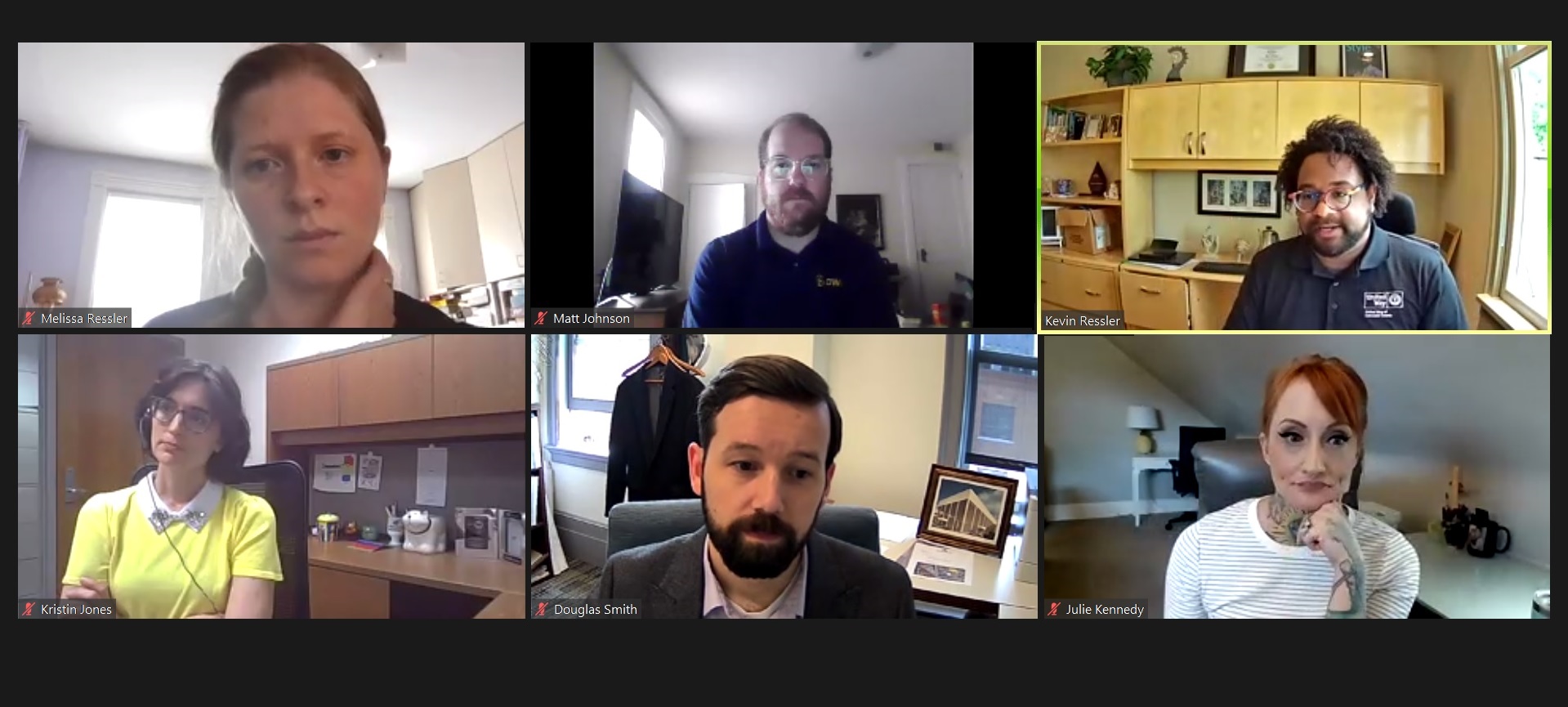
Lancaster County's housing affordability crisis isn't a homogenous, monolithic problem.
Refugees seeking housing deal with unique barriers, as do the elderly, as do the working poor. Solutions must be correspondingly creative and nuanced, panelists said Wednesday in United Way of Lancaster County's online "Conversation About OUR Community" on housing and "hidden populations." The nonprofit's President & CEO, Kevin Ressler, moderated the event.
The community sit back and expect government, large institutions and developers to do all the hard work of expanding housing accessibility, said Melissa Ressler, executive director of Lancaster Downtowners. (The two Resslers are husband and wife.)
"It's up to us," she said. "We can't just wait for the solutions to be handed down."
The Downtowners organization is a nonprofit network of senior citizens and allies, based on a "village" model of mutual support. In a presentation kicking off Wednesday's forum, Ressler said the U.S. is undergoing an epochal demographic shift from an age "pyramid" — in which younger cohorts outnumber older ones — to a "pillar" of roughly equal cohorts.
"Our culture hasn't caught up," she said. U.S. housing stock is a case in point: The majority was built on the assumption that occupants would be able-bodied and, in the suburbs, capable of driving.
Correcting the misalignment of existing housing with emerging needs will require a radical rethinking, she said. Two promising avenues: Expanding opportunities for older and younger generations to share housing; and prioritizing the inclusion of accessible design features such as on-grade entry and wide doorways in new construction and renovations.
Ressler cited a tenet of architect and urban planner M. Scott Ball: If a design works for children and the elderly, it will work for everyone in between.
For refugees, housing challenges include language and cultural barriers, along with the absence of credit and employment history that comes with starting fresh in a new country, said Matt Johnson, strategic community partnerships officer with Church World Service, Lancaster's largest resettlement agency.
CWS has developed relationships with landlords willing to work around those issues, Johnson said. Meanwhile, with the rental market in Lancaster city tighter than ever, CWS has concentrated more and more on identifying housing in outlying areas that offer access to nearby jobs, transportation and other resources, he said.
Just over one-third of Lancaster County households fall below the United Way's "ALICE" threshold, a measure reflecting their ability to afford basic necessities. (The acronym stands for "Asset Limited, Income Constrained, Employed.) For ALICE households, one missed paycheck can mean disaster; sure enough, when the pandemic hit, United Way's 211 service was deluged with calls, said Julie Kennedy, community initiatives manager for United Way of Lancaster County.
Kennedy and Kristin Jones, of the Lancaster Office of Aging, said the thicket of regulations, eligibility criteria and documentation requirements for social services make it difficult to provide households the resources they need. Another barrier is lack of funding: Counties have thousands of people on their waiting lists for subsidized housing.
For more information
Douglas Smith is chief planner in Lancaster city's Department of Community Planning & Economic Development. The city is dedicating millions of dollars in American Rescue Plan Act Funds to expanding affordable housing, he said.
It's making a major push to remediate lead hazards and has expanded its "critical repair" program, which helps eligible homeowners pay to fix aging roofs and other deferred maintenance issues that might otherwise force them out of their houses. It has hired social workers to help households relocate while their properties are remediated.
Still, "it never feels like enough," he said.
When the panelists were asked to name one policy reform that could significantly improve housing accessibility, Smith cited countywide planning. Having 60 individual municipalities all setting their own zoning codes and land use policy is "insane," he said, and leads to suburban sprawl and a chronic undersupply of affordable housing.
For moderator Kevin Ressler, it is bringing back the enhanced child credit. Enacted as part of the Biden administration's pandemic response, it reduced child poverty by 40%; when it expired, poverty immediately rebounded.
Kennedy endorsed universal housing vouchers, along with upgrades to the systems applicants must use to apply for benefits, which are outdated, confusing and byzantine.
Melissa Ressler pointed to the Whole Home Repairs Bill, which would establish a robust statewide critical-repair program.
She and the other panelists called both for bolstering the public's awareness of available social services, and for encouraging more volunteering and neighbor-to-neighbor support.
Checking in on a retiree next door, changing a lightbulb for them or bringing them a meal — these are little things, but they help people stay connected and thriving.
Everyone can be part of "those individual connections," Ressler said.






